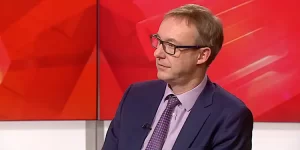Britain’s fragile public finances will cast a shadow over the general election campaign, with both Rishi Sunak and Sir Keir Starmer warned of impending fiscal challenges by a leading economics think tank.
The Institute for Fiscal Studies (IFS) cautions that the economy faces “the worst of both worlds” — low GDP growth and increased debt interest spending due to interest rates reaching a 16-year high.
According to the IFS, growth is unlikely to return to healthier trends in the next parliament, with government spending on debt repayment expected to stay high. This situation will limit the fiscal flexibility of any incoming chancellor after the general election on July 4.
Paul Johnson, director of the IFS, noted that both Starmer and Sunak have promising ideas to stimulate growth but must also contend with the challenging economic and fiscal environment. “When growth is high and interest rates are relatively low, the government can run looser fiscal policy — it can borrow more — without pushing debt onto a rising path,” the think tank explained. Unfortunately, the conditions of high growth and low debt interest payments are not expected to be met in the next parliament.
The UK’s debt-to-GDP ratio has surged to nearly 100% from around 65% in 2010, driven by borrowing to cover Covid pandemic costs and energy price hikes following Russia’s invasion of Ukraine. Taxes as a share of GDP are also set for a post-Second World War high. Interest rates have risen to 5.25%, and despite inflation dropping to 2.3% from 11.1%, the increased debt interest spending diverts resources from other public services.
The IFS warns that both Labour and Conservative parties will face stringent fiscal constraints on their first day in office, having broadly committed to existing fiscal rules that aim to reduce the debt-to-GDP ratio within five years and cap annual borrowing at 3% of GDP. Jeremy Hunt, the current chancellor, has cut national insurance contributions by four percentage points over the past two fiscal events, yet the Office for Budget Responsibility estimates only £8.9 billion in “headroom” against fiscal targets after the March budget, a significant drop from the £27 billion average since 2010.
National insurance cuts have been partially funded by significant real-term budget cuts for unprotected government departments, including local councils and the courts. However, the specifics of which departmental budgets will bear these cuts remain unclear, leading to criticism from the IFS for lack of transparency. “We could, as a country, decide to charge for services that are free or to means-test things that are provided universally or for the state to stop doing things that it does,” the IFS noted. They highlighted the inconsistency in allowing parties to promise spending cuts without detailing where reductions would occur.
The looming budget squeeze could result in real-term reductions between 1.9% and 3.5% per year, equating to cuts of £10 billion to £20 billion. The Resolution Foundation, another economic think tank, has described these planned cutbacks as a “fiscal fiction.”
A comprehensive spending review is expected to be one of the first major economic actions undertaken by either Labour or the Conservatives following the election.
Read more:
IFS Warns of Tight Fiscal Constraints for Next Government
























